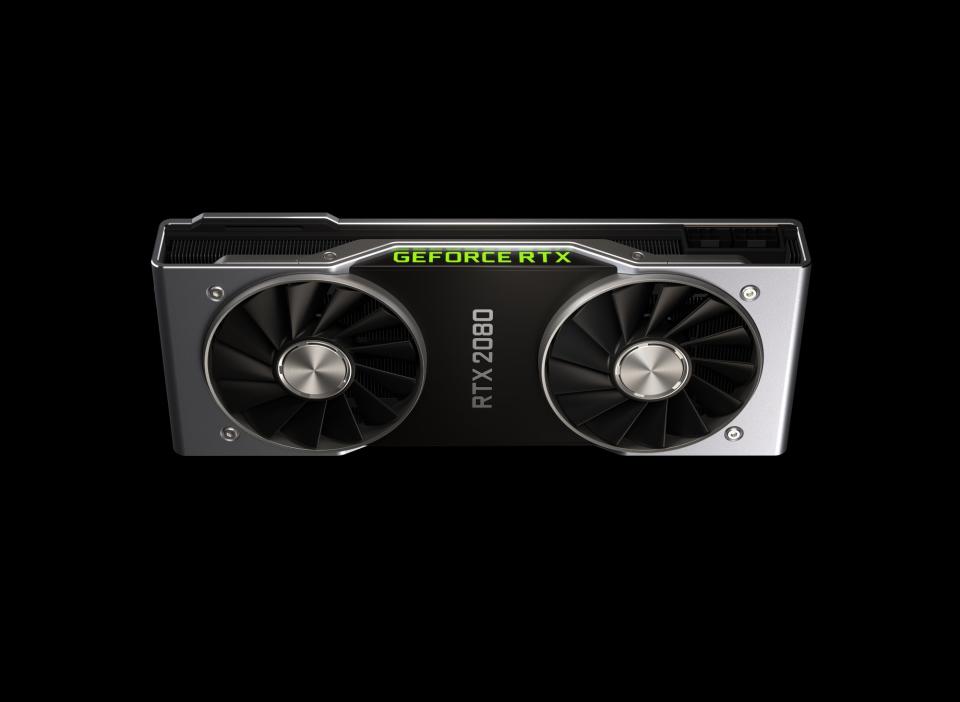NVIDIA Pulls Its Full-Year Guidance
In February, NVIDIA (NASDAQ: NVDA) reported a terrible fourth quarter, with its results dragged down by excess gaming inventory, weak sales of its newest graphics cards, and a slowdown in the data center market. Revenue plummeted 24% year over year, and the company guided for an even steeper decline in the first quarter.
At the same time, NVIDIA predicted that its revenue for fiscal 2020 would be flat to slightly down, an outlook that would require some pretty incredible, and wholly unrealistic, second-half growth. That forecast would require a massive rebound in the gaming business, something that didn't make much sense based on the headwinds facing that segment and what management was saying about what normalized demand would look like. It didn't add up.
It didn't take long for reality to rear its ugly head. Despite the company's 31% revenue decline in the first quarter slightly beating analyst estimates, NVIDIA pulled its full-year guidance entirely. "The core dynamics of our business at every level is exactly what we expected," said CFO Colette Kress during the first-quarter earnings call. "Just that said though, we're going to return to just quarterly guidance at this time."
I'll translate: "Everything's going according to plan, but we're changing the plan, and we're not telling you what it is."

The RTX 2080 graphics card. Image source: NVIDIA.
A gaming rebound, sort of
NVIDIA's gaming business did come back to life in the first quarter, at least relative to the fourth quarter of last year. Gaming revenue was $1.055 billion, up 11% from the prior quarter, but down 39% year over year. Kress said on the earnings call that the company expects gaming to reach its normalized level, previously pegged at roughly $1.4 billion, sometime between the second and third quarters.
Kress also said that much of the company's expected sequential growth in the second quarter would come from the gaming business. NVIDIA expects total Q2 revenue of $2.55 billion, up about $330 million from the first quarter. If all of that growth comes from gaming, gaming revenue will be just shy of the normalized level in the second quarter.
Assuming NVIDIA hits its Q2 guidance, total gaming revenue in the first half of the year will be around $2.45 billion. That's a bit more than $1 billion lower than gaming revenue in the first half of fiscal 2019. NVIDIA would need to average nearly $1.9 billion of gaming revenue in the final two quarters of the year for gaming revenue to be flat this year. That's way above the normalized level, and it would require NVIDIA to set quarterly revenue records for its gaming business.
That's the math that made NVIDIA's original full-year guidance seem completely unrealistic. I expected NVIDIA to cut its guidance, which it effectively did by pulling it altogether.
Low visibility
Beyond the gaming segment, the data center business continues to struggle. Revenue was down both sequentially and year over year in the first quarter, and the company expects that weakness to continue. "The data center spending pause around the world will likely persist in the second quarter and visibility remains low," Kress said during the earnings call. She later added, "Right now, visibility probably just remains the same about as where we were when we started three months ago."
The data center business may look better in the second half of the year, but there's no telling how much better. Some of NVIDIA's customers are working through excess inventory, and inventory corrections like that don't happen for no reason. The rapid-fire data center growth NVIDIA has enjoyed in the past few years is probably not coming back.
With NVIDIA abandoning its guidance, a revenue decline this year is now almost a guarantee. The only question is: How bad will it be?
More From The Motley Fool
Timothy Green has no position in any of the stocks mentioned. The Motley Fool owns shares of and recommends NVIDIA. The Motley Fool has a disclosure policy.
